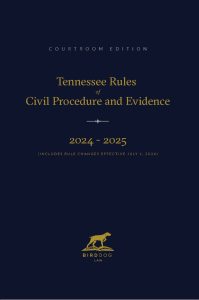An expert witness in an HCLA case who admittedly did not know any information about the hospital that administered treatment, including what services it offered or its size, and had never spoken to anyone who worked there or been there in person, did not satisfy the locality rule.
In Bowen v. Nelson, No. W2024-00749-COA-R3-CV (Tenn. Ct. App. May 27, 2025), the plaintiff filed an HCLA action based on her treatment and the transfer process at Jackson-Madison County General Hospital. The plaintiff identified Dr. Jim as her standard of care and causation expert. In his deposition, Dr. Jim stated that he had spent many years working at a hospital in St. Lous, Missouri. When questioned about his familiarity with the hospital where the plaintiff was treated, he admitted to knowing very little. He did not know the population of the city, did not know how many beds were in the hospital (and guessed very inaccurately), and did not know what services the hospital offered. He stated that he had never spoken to anyone who worked at the hospital or visited the hospital.
Based on this testimony, the defendants filed a motion to exclude Dr. Jim pursuant to the locality rule, as well as a motion for summary judgment based on the plaintiff’s inability to prove the necessary elements of her HCLA claim by expert proof. The trial court granted both motions, and the Court of Appeals affirmed.
 Day on Torts
Day on Torts


